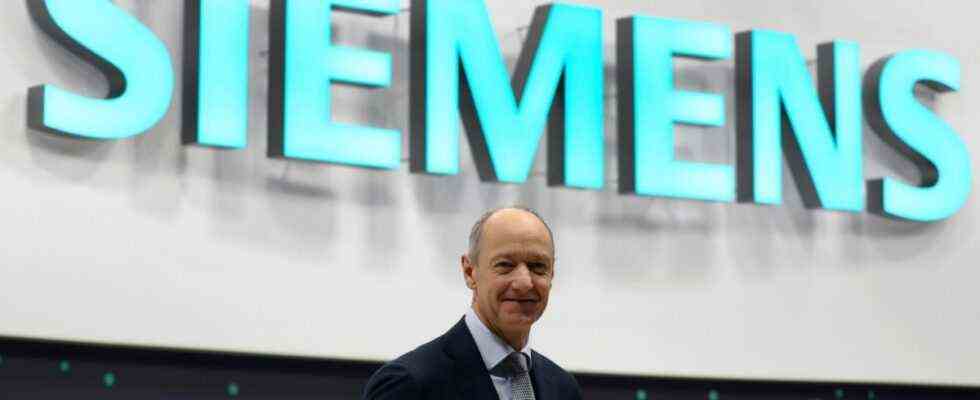As the new CEO, what should you still do if your predecessor has already rebuilt the store like no one before him? And what should you say if your predecessor always said a lot about your own company, geopolitics in general and the AfD in particular?
Roland Busch, who has only been the successor at the helm of the Siemens Group since February, has decided to do things differently than his illustrious predecessor Joe Kaeser. At his first big appearance in front of investors this Thursday morning he does not announce any major renovations, Siemens should now stay as it is. No more major spin-offs and IPOs, this has not happened for a long time. Busch also does not comment on the overall global political situation.
But, and that is the real revolution of the new boss: Busch wants the company to grow primarily through software technologies in the coming years: Siemens is to become a kind of digital company. Not a new Apple, Google or SAP, but a supplier for the digitization of entire industrial sectors. For an old industrial giant that was founded in a Berlin backyard in 1847 and has done pretty much everything since then, from telegraphs to gas turbines to cell phones, trams and computer tomographs, that’s quite a break. However, if its predecessor Kaeser had not recently brought the large energy sector to the stock exchange and had already brought the lucrative medical technology business with its large X-ray machines and CT systems to the stock exchange, he would not have made Siemens much smaller, then Busch might have another program here today proclaim.
Busch knows what investors want to hear
But as it is today, he stands in front of a dark background at the digital investor’s day and tells the story of a new Siemens. Busch wears a dark suit and a light blue shirt, but no tie. And he pays attention to the targeted use of facial expressions, hands and arms during the lecture. As a Siemens boss, standing in front of a camera and having to announce a new strategy doesn’t happen every day. At the beginning, Busch says that he has been with Siemens for over 30 years, which of course should be an important point for investors: The newcomer knows his way around, he knows what Siemens has been in the last few decades. And he knows what investors want to hear. For example, a good story, a new one.
Busch brought them with him today. He announced that sales from the coming 2021/22 financial year will increase by five to seven percent – more than the four to five percent that was previously on the plan. Profit should grow even more than sales, by eight to ten percent. “To do more with less” – do more with less, that is the new announcement in the Munich global corporation. What else? Siemens has also gotten smaller. But size, as Joe Kaeser said some time ago, is no longer relevant in these times anyway. If size were important, dinosaurs would still roam the forests today, said the ex-boss.
Smaller, more agile, more digital and highly profitable – this is how Siemens sees itself today. Anything but not being a big dinosaur. “Our growth engines are digitization, automation and sustainability,” says Busch. “Our core business and our digital business are mutually reinforcing.” Or, as the strategists in Munich put it somewhat cryptically: Real and digital Siemens worlds should interlock – industrial machines and systems are combined with software and factories are digitized. This is how Siemens wants to organize the industrial production of tomorrow. The change has a great charm for the old industrial group: With software, a company can make a good return and earn more than, for example, building trams.
Less than an hour after Siemens began to swear its investors to the new times, the company’s share had fallen by over 1.5 percent and was thus far below the Dax. Some investors would have liked to see even higher profit targets, said stockbrokers. Others have already priced in the new strategy and are now selling again.

